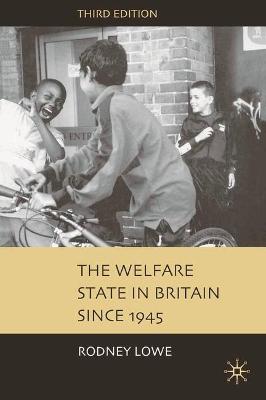Since the 1970s, welfare reform has been a political priority throughout the western world. In Britain, it has dominated New Labour under Tony Blair as much as it did the Conservatives under Margaret Thatcher. More generally, globalization has raised fears that national governments will dismantle their welfare states and, as in the 1930s, expose their citizens to the danger of mass unemployment and poverty.
The Welfare State in Britain since 1945 examines key questions such as:
- Why were welfare states created after the Second World War?
- Did the 'classic' welfare state in Britain create a more fair and efficient society as its creators such as Beveridge hoped; or did it stifle initiative and enterprise, thereby accelerating economic decline?
- Since the 1970s, has the introduction of greater market discipline into economic and social policy resulted in the dismantling of the welfare state; or has it been effectively restructured to satisfy old, and meet new, needs?
- Is there a new 'Thatcherite' consensus?
- Has Britain become once again, as in the 1940s, a welfare leader?
This new edition of a well-established text has been enlarged to provide full coverage of the Thatcher years and New Labour. Rodney Lowe incorporates the latest research as well as an appreciation of variations in national policy, particularly in the aftermath of devolution. In so doing, Lowe provides the fullest range of available evidence on which to base informed judgements on the past record, and future direction, of welfare policy in Britain.
- ISBN13 9781403911926
- Publish Date 17 December 2004 (first published 14 January 1993)
- Publish Status Out of Print
- Out of Print 4 November 2021
- Publish Country GB
- Publisher Macmillan Education UK
- Imprint Red Globe Press
- Edition 3rd ed. 2004
- Format Hardcover
- Pages 455
- Language English
